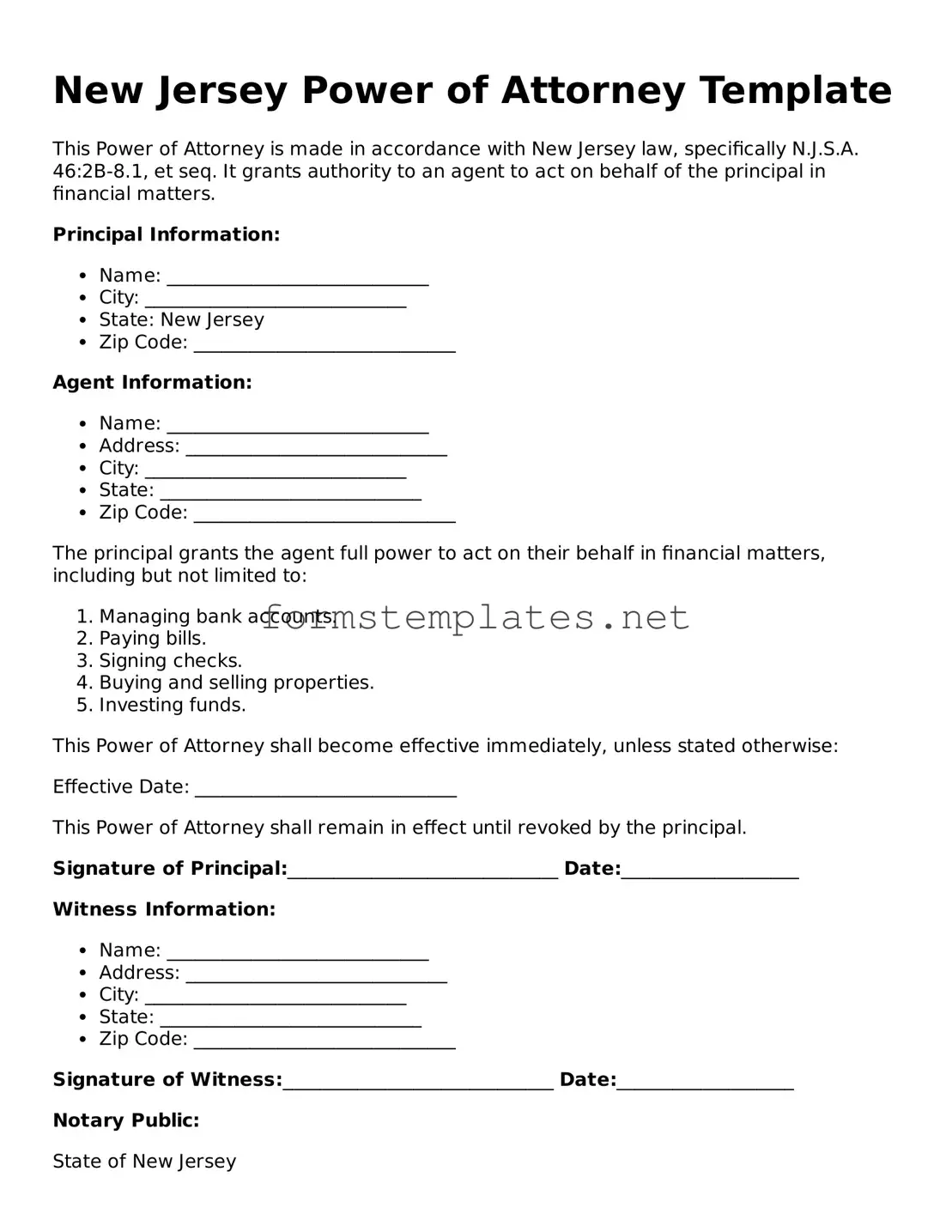Attorney-Approved New Jersey Power of Attorney Template
A Power of Attorney form in New Jersey is a legal document that allows one person to authorize another to act on their behalf in financial or legal matters. This important tool ensures that your wishes are respected and your affairs are managed even if you are unable to do so yourself. Understanding the nuances of this form can be crucial for effective planning and decision-making.
Open Editor Now

Attorney-Approved New Jersey Power of Attorney Template
Open Editor Now

Open Editor Now
or
⇓ PDF Form
Your form still needs attention
Finalize Power of Attorney online — simple edits, saving, and download.